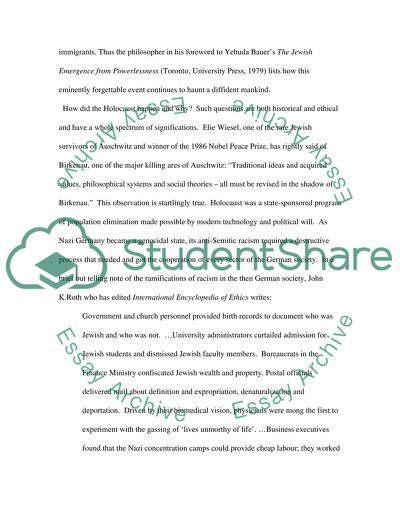Cite this document
(“Paul Steinbergs Speak You Also against Primo Levis rendition of Henri Essay”, n.d.)
Retrieved from https://studentshare.org/miscellaneous/1519938-paul-steinbergs-speak-you-also-against-primo-levis-rendition-of-henri-in-survival-in-auschwitz
Retrieved from https://studentshare.org/miscellaneous/1519938-paul-steinbergs-speak-you-also-against-primo-levis-rendition-of-henri-in-survival-in-auschwitz
(Paul Steinbergs Speak You Also Against Primo Levis Rendition of Henri Essay)
https://studentshare.org/miscellaneous/1519938-paul-steinbergs-speak-you-also-against-primo-levis-rendition-of-henri-in-survival-in-auschwitz.
https://studentshare.org/miscellaneous/1519938-paul-steinbergs-speak-you-also-against-primo-levis-rendition-of-henri-in-survival-in-auschwitz.
“Paul Steinbergs Speak You Also Against Primo Levis Rendition of Henri Essay”, n.d. https://studentshare.org/miscellaneous/1519938-paul-steinbergs-speak-you-also-against-primo-levis-rendition-of-henri-in-survival-in-auschwitz.


